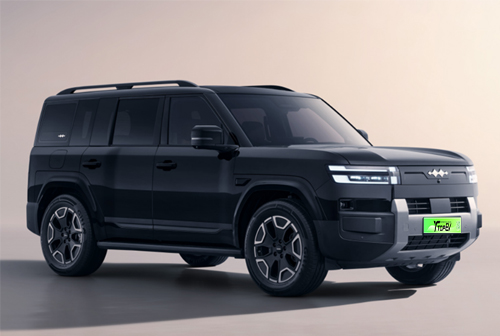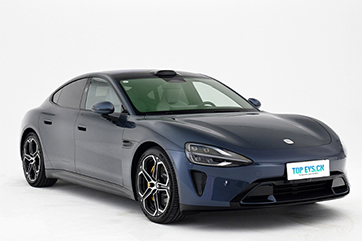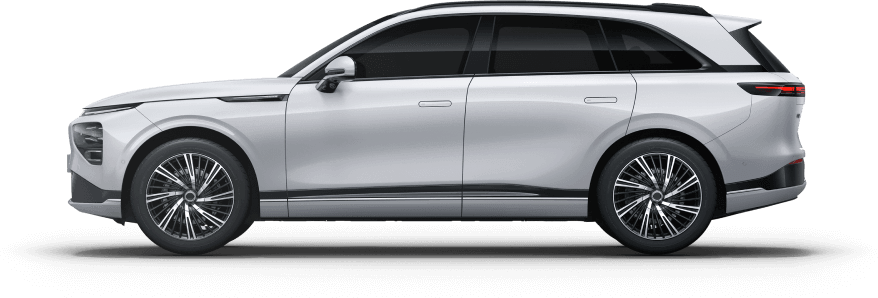Release Date : 2025-07-04
In the highly competitive new energy vehicle market, the Xiaomi YU7 has captured widespread attention since its debut, with its initial sales performance sparking heated discussions across the industry.
As Xiaomi Auto’s second mass-produced vehicle, the YU7 carries the mission of reinforcing the brand's market position and expanding its share. Today, Xiaomi’s success story has become a frequent case study in automotive marketing departments.
.jpg)
On June 26, during the official launch, the YU7 was unveiled. According to Xiaomi, within just 3 minutes of opening orders, more than 200,000 reservations were placed; after 1 hour, that number soared to 289,000. These astounding figures highlight the vehicle’s strong market appeal.
The surge in orders is attributed to a multi-dimensional product strategy. From a design perspective, the YU7 inherits Xiaomi SU7’s family language with further innovation. It features a long front and short rear, inward-folding electric hidden door handles, frameless doors, and a wraparound tail light. With a drag coefficient as low as 0.245Cd, it balances stylish looks with aerodynamic efficiency. Its dimensions (4999/1996/1600mm) and 3000mm wheelbase ensure ample interior space for family needs.
In terms of performance, the 2025 Xiaomi YU7 offers both single- and dual-motor options. The high-performance all-wheel-drive version delivers a combined 508kW of power and accelerates from 0–100 km/h in just 3.23 seconds. Equipped with either a 96.3kWh or 101.7kWh battery pack, it offers a CLTC range of up to 835 km and supports 800V fast charging, alleviating range and charging concerns.
The intelligent cabin is powered by Xiaomi's HyperOS, seamlessly connecting phone, car, and smart home devices. Users can remotely activate the air conditioning via smartphone or control smart appliances. The panoramic Xiaomi Sky Display enhances the futuristic driving experience.
Brand influence and ecosystem also contribute to the YU7’s success. Xiaomi’s long-standing presence in smartphones and home appliances has fostered a loyal fan base. Many consumers trust the brand and are eager to explore its automotive offerings. During the launch, CEO Lei Jun emphasized that the YU7 Xiaomi is positioned to compete directly with Tesla Model Y, combining high performance with strong value.
Among all challengers targeting the Model Y, the Xiaomi YU7 stands out as the most successful. Since the launch of the SU7 in March 2023, Xiaomi has made waves in China’s EV market. By December, SU7’s monthly sales surpassed Tesla Model 3, even earning praise from Ford CEO Jim Farley.
Priced from RMB 253,500, the Xiaomi YU7 undercuts the Model Y by nearly 4%. Analysts believe this could further erode Tesla’s market share. Tesla’s share in China has already dropped from 15% in 2020 to 10% in 2024, and to 7.6% in the first five months of 2025. Given that China accounts for about 20% of Tesla’s revenue, Citi analysts warn that Tesla may need to offer further discounts, free FSD (Full Self-Driving), and new financial incentives to remain competitive.
.jpg)
Still, Xiaomi faces challenges ahead despite the hype.
The surge in orders has exposed capacity constraints. The Phase 1 factory has an annual capacity of only 150,000 units, most of which are already allocated to the SU7. While Phase 2 is expected to double capacity, its production timeline remains uncertain. Some analysts warn that even with accelerated production, some customers might not receive their YU7 until early 2027, potentially damaging brand perception.
Quality concerns are also emerging. A recent video by Dongchedi showed the Xiaomi YU7’s brake discs catching fire during extreme high-load testing. Xiaomi responded that the fire was caused by organic materials in the brake pads and did not affect braking performance, but the incident has sparked safety concerns.
Further controversies include inconsistencies in listed features. Some customers noticed that during the pre-order phase, both Standard and Pro versions were shown to include automatic anti-glare side mirrors. However, post-order documentation listed that feature as exclusive to the Max version. Some showroom vehicles also showed signs of poor quality control, such as pitted control arms and untrimmed casting edges.
.jpg)
The Xiaomi YU7 reflects both the promise and pitfalls of China’s rapidly evolving EV industry. For long-term success, Xiaomi must scale up production, improve supply chain management, and tighten quality control.
While Xiaomi stands on the shoulders of giants in smart tech, automotive excellence requires mastering the fundamentals honed by a century of engineering.

.jpg)
.jpg)
.jpg)
.jpg)

.jpg)
.jpg)
.jpg)
.jpg)

.jpg)




